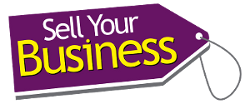
How to Stage a Beauty Parade – Which Professional Advisors to Beauty Parade?
There are four core professionals available when selling a business and they include a: Business Broker, Solicitor, Accountant and Tax advisor. Retaining professional services is very costly, so there needs to be enough room in your sale proceeds to pay for them and enjoy your own personal profits. Generally, businesses that are selling for over £1m are more likely to use a team rather than just one professional. With so much expense at stake, it’s imperative to know how to stage a beauty parade.
If, however, you’re selling for under the £1m mark there’s still a need for professional services – perhaps not all of them. Cost can be a huge factor. There’s no sense selling out if all your profits are used up by the professionals that make the sale happen!
Regardless, whether you’re selling for over or under the £1m mark, chances are that you’ll need to retain some professional services. One of the best ways to decide the best professional for your requirements is to stage a professional advisors to beauty parade.
A beauty parade is where you ‘interview’ more than one professional service provider within the same profession against the same criteria and scoring system. For example, when a friend of mine recently exited his company, he staged a beauty parade between three different solicitors. He asked each solicitor the same questions and scored them against the same criteria.
If you’re selling for millions, it’s likely that you’ll have a large team and it’s highly advisable to stage a beauty parade for each profession: Broker, Solicitor, Accountant and Tax advisor. It might seem like a lot of work, but your professional advisory team can ultimately make or break your business sale.
How to Find the Professionals
The best way to find business sale professionals is to start asking around. It’s often hard to beat a word-of-mouth referral. Failing that, you can search locally on the Internet, get recommendations from other professionals or if you belong to a business group, find out if they can point you in the right direction. You can also use social media (LinkedIn, etc) to find professionals although you’ll have to be discrete about how you do it.
Sending out a Brief
Once you select several potential professional advisors, depending on your needs, you can then send each company a short concise document outlining your intentions, objectives and time scales. You’ll want to give some history, explain your situation, tell what your company does and so forth and then ask several questions that you can use to narrow down the professionals that you’re most interested in.
The initial brief email is an early qualifying device. You can make early judgments about the professional/company based on how quickly they responded, the tone they use and how helpful the seem to be.
Short-list the Candidates and set up Interviews
As soon as you’ve narrowed your selection, it’s time to set up interviews. It’s best to see similar professions close together. For example, if you’re going to interview three brokers, try and see them all over a day or two.
Create a Beauty Parade Question Sheet
Going on gut instinct isn’t always the best way to do things! With a score sheet you can ensure that you ask each profession the same question and can then compare answers. For example, you’ll want to ask each Broker questions like:
- What were the last 5- 10 deals that you successfully completed?
- Who, specifically, facilitated those deals? And will they be helping me?
- Can you give an example of helping a business similar to mine (either in size, market, overall objective)?
And ask the Solicitors questions like:
- What is your suggested sale process steps and approximate timescales?
- For each individual and as a business, how many other deals do you normally work on at the same time and what stage are those deals at?
- Based on what you already know about my business, can you point out some strong versus weak points concerning the business sale process (in other words, what’s going for you and what’s going against you?)
Create a Beauty Parade Score Sheet
In addition to asking each profession your questions, you can also create an overall score sheet that holds items like, “Did you get on well or was there a clash of personalities?” or “Did you like/dislike any of the team?”
Decision Time!
After all the interviews, tally up your score sheets and determine what professional seems best for your situation.
Make your Life much, much Easier
If the concept of how to stage a beauty parade makes sense to you but you’re overwhelmed by the various steps, let us help you out. We’ve created a 45 page pack called, ‘The Seller’s Professional Advisors Beauty Parade Pack.’ The pack outlines exactly what you need to write in the briefing email, how to short-list the candidates, over 20 questions each for each profession on key questions to ask, a beauty parade score sheet in addition to the process necessary to retain the professionals.
Don’t have the headache we had going through this process with little help, use this pack to ensure you get the best professionals possible!
Kim Brown, Co-Founder of Business Wand, helps business owners navigate their way through the start to finish process of selling a business. Her specialty is to help owners cut costs and increase profits prior to sale. To understand how you can sell your business quickly for the highest sales price, purchase the book, “How To Sell A Business: The #1 guide to maximising your company value and achieving a quick business sale”











